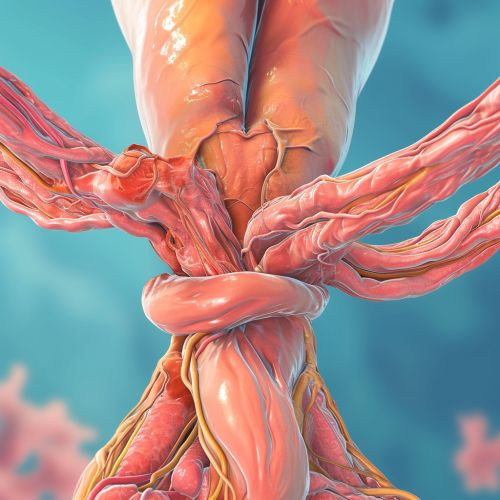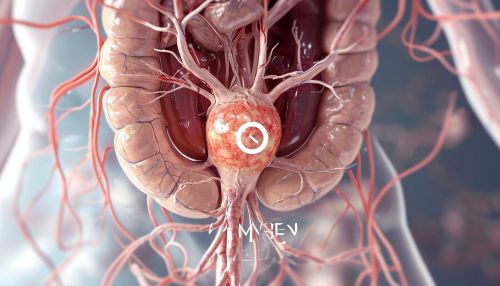Ureteral Obstruction
Overview
Ureteral obstruction is a medical condition characterized by the blockage of one or both ureters, the tubes that carry urine from the kidneys to the bladder. This blockage can be caused by a variety of factors, including kidney stones, tumors, and certain diseases and conditions. The obstruction can be either acute or chronic, and can lead to serious complications if not treated promptly.
Causes
The causes of ureteral obstruction can be broadly divided into intrinsic (those arising within the ureter) and extrinsic (those arising outside the ureter).
Intrinsic Causes
Kidney stones are the most common cause of intrinsic ureteral obstruction. These hard deposits of minerals and salts can form in the kidneys and then travel down the ureters, causing a blockage. Other intrinsic causes include ureteral strictures (narrowing of the ureter due to scar tissue), blood clots, and tumors within the ureter.
Extrinsic Causes
Extrinsic causes of ureteral obstruction include tumors in the surrounding organs, such as the bladder, colon, or cervix, which can press on the ureters and cause a blockage. Other extrinsic causes include pelvic inflammatory disease, endometriosis, and certain surgeries that can lead to scar tissue formation around the ureters.


Symptoms
The symptoms of ureteral obstruction can vary depending on the severity and duration of the blockage. Common symptoms include pain in the back or side (often severe), blood in the urine (hematuria), frequent urination, and urinary tract infections. In some cases, ureteral obstruction can lead to kidney damage, which can cause additional symptoms such as swelling in the legs and ankles, high blood pressure, and decreased kidney function.
Diagnosis
The diagnosis of ureteral obstruction typically involves a combination of physical examination, medical history, and imaging tests. A physical examination may reveal tenderness in the area of the kidneys, and a medical history can help identify any risk factors for ureteral obstruction, such as a history of kidney stones or certain surgeries. Imaging tests, such as ultrasound, computed tomography (CT) scans, and magnetic resonance imaging (MRI), can help visualize the ureters and identify any blockages.
Treatment
The treatment of ureteral obstruction depends on the cause and severity of the blockage. In some cases, treatment may involve medication to help dissolve kidney stones or reduce inflammation. In other cases, surgical intervention may be necessary to remove the blockage or to place a stent in the ureter to keep it open. In severe cases, where the kidney has been significantly damaged, kidney removal (nephrectomy) may be necessary.
Prognosis
The prognosis for ureteral obstruction depends on the cause and severity of the blockage, as well as the patient's overall health. With prompt treatment, most cases of ureteral obstruction can be successfully managed, and the prognosis is generally good. However, if left untreated, ureteral obstruction can lead to serious complications, including kidney damage and infection.
